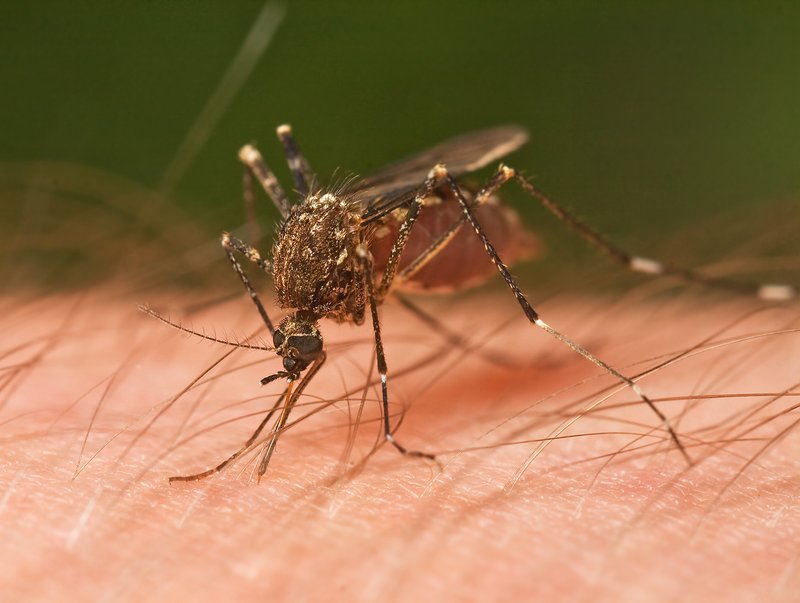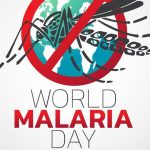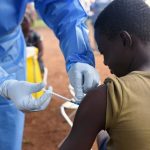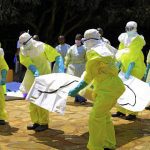
The United Nation’s humanitarian agency says more than one thousand eight hundred people have been killed by Malaria in Burundi in 2019.
In its latest situation report, the United Nations Office for the Coordination of Humanitarian Affairs (OCHA) said 5.7 million cases of malaria had been recorded in Burundi in 2019 – a figure roughly equal to half its entire population.
Of those cases, a total of 1,801 died from the mosquito-born disease in Burundi between January 1 and July 21, OCHA said.
The tiny country of 11 million people in the African Great Lakes region has still not declared a national emergency, despite OCHA saying the outbreak crossed “epidemic proportions” in May.
“The national malaria outbreak response plan, which is currently being validated, has highlighted a lack of human, logistical and financial resources for effective response,” OCHA said in its latest weekly bulletin on humanitarian emergencies.
“All stakeholders, including the national authorities and partners are called upon to provide the requisite resources to mount a robust response to this event before it escalates.”
A lack of preventative measures like mosquito nets, climatic changes and increased movements of people from mountain areas with low immunity to malaria were driving the crisis, OCHA further stated.

The United Nation’s humanitarian agency says more than one thousand eight hundred people have been killed by Malaria in Burundi in 2019.
In its latest situation report, the United Nations Office for the Coordination of Humanitarian Affairs (OCHA) said 5.7 million cases of malaria had been recorded in Burundi in 2019 – a figure roughly equal to half its entire population.
Of those cases, a total of 1,801 died from the mosquito-born disease in Burundi between January 1 and July 21, OCHA said.
The tiny country of 11 million people in the African Great Lakes region has still not declared a national emergency, despite OCHA saying the outbreak crossed “epidemic proportions” in May.
“The national malaria outbreak response plan, which is currently being validated, has highlighted a lack of human, logistical and financial resources for effective response,” OCHA said in its latest weekly bulletin on humanitarian emergencies.
“All stakeholders, including the national authorities and partners are called upon to provide the requisite resources to mount a robust response to this event before it escalates.”
A lack of preventative measures like mosquito nets, climatic changes and increased movements of people from mountain areas with low immunity to malaria were driving the crisis, OCHA further stated.

The United Nation’s humanitarian agency says more than one thousand eight hundred people have been killed by Malaria in Burundi in 2019.
In its latest situation report, the United Nations Office for the Coordination of Humanitarian Affairs (OCHA) said 5.7 million cases of malaria had been recorded in Burundi in 2019 – a figure roughly equal to half its entire population.
Of those cases, a total of 1,801 died from the mosquito-born disease in Burundi between January 1 and July 21, OCHA said.
The tiny country of 11 million people in the African Great Lakes region has still not declared a national emergency, despite OCHA saying the outbreak crossed “epidemic proportions” in May.
“The national malaria outbreak response plan, which is currently being validated, has highlighted a lack of human, logistical and financial resources for effective response,” OCHA said in its latest weekly bulletin on humanitarian emergencies.
“All stakeholders, including the national authorities and partners are called upon to provide the requisite resources to mount a robust response to this event before it escalates.”
A lack of preventative measures like mosquito nets, climatic changes and increased movements of people from mountain areas with low immunity to malaria were driving the crisis, OCHA further stated.

The United Nation’s humanitarian agency says more than one thousand eight hundred people have been killed by Malaria in Burundi in 2019.
In its latest situation report, the United Nations Office for the Coordination of Humanitarian Affairs (OCHA) said 5.7 million cases of malaria had been recorded in Burundi in 2019 – a figure roughly equal to half its entire population.
Of those cases, a total of 1,801 died from the mosquito-born disease in Burundi between January 1 and July 21, OCHA said.
The tiny country of 11 million people in the African Great Lakes region has still not declared a national emergency, despite OCHA saying the outbreak crossed “epidemic proportions” in May.
“The national malaria outbreak response plan, which is currently being validated, has highlighted a lack of human, logistical and financial resources for effective response,” OCHA said in its latest weekly bulletin on humanitarian emergencies.
“All stakeholders, including the national authorities and partners are called upon to provide the requisite resources to mount a robust response to this event before it escalates.”
A lack of preventative measures like mosquito nets, climatic changes and increased movements of people from mountain areas with low immunity to malaria were driving the crisis, OCHA further stated.

The United Nation’s humanitarian agency says more than one thousand eight hundred people have been killed by Malaria in Burundi in 2019.
In its latest situation report, the United Nations Office for the Coordination of Humanitarian Affairs (OCHA) said 5.7 million cases of malaria had been recorded in Burundi in 2019 – a figure roughly equal to half its entire population.
Of those cases, a total of 1,801 died from the mosquito-born disease in Burundi between January 1 and July 21, OCHA said.
The tiny country of 11 million people in the African Great Lakes region has still not declared a national emergency, despite OCHA saying the outbreak crossed “epidemic proportions” in May.
“The national malaria outbreak response plan, which is currently being validated, has highlighted a lack of human, logistical and financial resources for effective response,” OCHA said in its latest weekly bulletin on humanitarian emergencies.
“All stakeholders, including the national authorities and partners are called upon to provide the requisite resources to mount a robust response to this event before it escalates.”
A lack of preventative measures like mosquito nets, climatic changes and increased movements of people from mountain areas with low immunity to malaria were driving the crisis, OCHA further stated.

The United Nation’s humanitarian agency says more than one thousand eight hundred people have been killed by Malaria in Burundi in 2019.
In its latest situation report, the United Nations Office for the Coordination of Humanitarian Affairs (OCHA) said 5.7 million cases of malaria had been recorded in Burundi in 2019 – a figure roughly equal to half its entire population.
Of those cases, a total of 1,801 died from the mosquito-born disease in Burundi between January 1 and July 21, OCHA said.
The tiny country of 11 million people in the African Great Lakes region has still not declared a national emergency, despite OCHA saying the outbreak crossed “epidemic proportions” in May.
“The national malaria outbreak response plan, which is currently being validated, has highlighted a lack of human, logistical and financial resources for effective response,” OCHA said in its latest weekly bulletin on humanitarian emergencies.
“All stakeholders, including the national authorities and partners are called upon to provide the requisite resources to mount a robust response to this event before it escalates.”
A lack of preventative measures like mosquito nets, climatic changes and increased movements of people from mountain areas with low immunity to malaria were driving the crisis, OCHA further stated.

The United Nation’s humanitarian agency says more than one thousand eight hundred people have been killed by Malaria in Burundi in 2019.
In its latest situation report, the United Nations Office for the Coordination of Humanitarian Affairs (OCHA) said 5.7 million cases of malaria had been recorded in Burundi in 2019 – a figure roughly equal to half its entire population.
Of those cases, a total of 1,801 died from the mosquito-born disease in Burundi between January 1 and July 21, OCHA said.
The tiny country of 11 million people in the African Great Lakes region has still not declared a national emergency, despite OCHA saying the outbreak crossed “epidemic proportions” in May.
“The national malaria outbreak response plan, which is currently being validated, has highlighted a lack of human, logistical and financial resources for effective response,” OCHA said in its latest weekly bulletin on humanitarian emergencies.
“All stakeholders, including the national authorities and partners are called upon to provide the requisite resources to mount a robust response to this event before it escalates.”
A lack of preventative measures like mosquito nets, climatic changes and increased movements of people from mountain areas with low immunity to malaria were driving the crisis, OCHA further stated.

The United Nation’s humanitarian agency says more than one thousand eight hundred people have been killed by Malaria in Burundi in 2019.
In its latest situation report, the United Nations Office for the Coordination of Humanitarian Affairs (OCHA) said 5.7 million cases of malaria had been recorded in Burundi in 2019 – a figure roughly equal to half its entire population.
Of those cases, a total of 1,801 died from the mosquito-born disease in Burundi between January 1 and July 21, OCHA said.
The tiny country of 11 million people in the African Great Lakes region has still not declared a national emergency, despite OCHA saying the outbreak crossed “epidemic proportions” in May.
“The national malaria outbreak response plan, which is currently being validated, has highlighted a lack of human, logistical and financial resources for effective response,” OCHA said in its latest weekly bulletin on humanitarian emergencies.
“All stakeholders, including the national authorities and partners are called upon to provide the requisite resources to mount a robust response to this event before it escalates.”
A lack of preventative measures like mosquito nets, climatic changes and increased movements of people from mountain areas with low immunity to malaria were driving the crisis, OCHA further stated.












